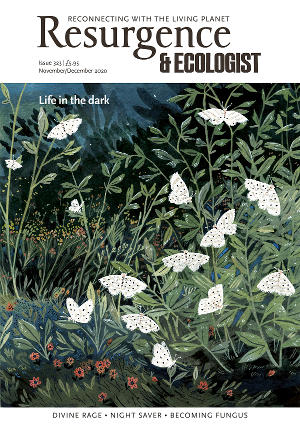I used to have a propensity for mistaking the lyrics for songs. “Ooh, baby, do you know that’s right! / Ooh, heaven is a place on earth” – correct lyrics: “Ooh, baby, do you know what that’s worth? / Ooh, heaven is a place on earth” from Belinda Carlisle’s ‘Heaven Is a Place on Earth’ – for example. My mistakes rarely made much sense and I was often embarrassed when I learned the correct words, although I do think that heaven can be a place on Earth – if we treat it right. (More on that later.) But every once in a while I found myself preferring my versions. Such was the case with INXS’s ‘Don’t Change’. Instead of “Don’t change for you / Don’t change a thing for me” – which Michael Hutchence actually cooed – I favoured “Don’t change the Earth / Don’t change a thing for me.” I still do.
Were future generations – assuming that future generations of humans exist – to look back at how we treated the planet and responded to the challenges of the climate crisis, they might summarise our modus operandi by invoking the pithy words of Roger Stone, disgraced henchman of US president Donald Trump: “Admit nothing, deny everything, launch counter attack.” Such has been the chorus to our approach.
The poetry and prose of the 35 writers in John Freeman’s Tales of Two Planets: Stories of Climate Change and Inequality in a Divided World offer a different refrain. Rather than echo the lyrics of corporate malfeasants and political miscreants, the contributors have offered new hymns. Rather than change a few words, they have composed new songs. And boy, do we need them! For, as Freeman writes in his introduction, “This is not a book about policy or about statistics. We are swimming in facts, but a fact does not fully obtain the depth of a fact, the power of a fact, until it becomes part of a story.”
Tales of Two Planets takes us on an emissions-free journey around the world – from Argentina to Bangladesh, Colombia to Denmark to Egypt, Sierra Leone to Turkey to the United States. Some of the stories are memories, others vignettes; some mournful, others vexed. While we process the message of Lauren Groff’s ‘Dusk’, we encounter the futuristic Tokyo of Sayaka Murata’s ‘Survival’ (which evokes Andrew Niccols’ 1997 film Gattaca), the chilling allegory of Daisy Johnson’s ‘Everything’, and the blunt force of Joy Williams’s excoriation of the moral vacuousness of big-game hunters in ‘The Psychopaths’. Fiction bleeds into creative nonfiction, which leaches into poetry. Genre distinctions disappear like the “great dome of smog” in Krys Lee’s ‘The Imperiled’.
Freeman claims that too many of our stories about climate change are about fear – “fear felt from the north for what is coming. Not enough are about how the climate crisis is being experienced across the globe.” Tales of Two Planets certainly helps fill that void. Readers hoping for a more buoyant vision of the future will experience more fear and should grab a life jacket for the rising tides. If we follow the wisdom and prescience of the writers here, we will need to change tune – our acts and omissions.







